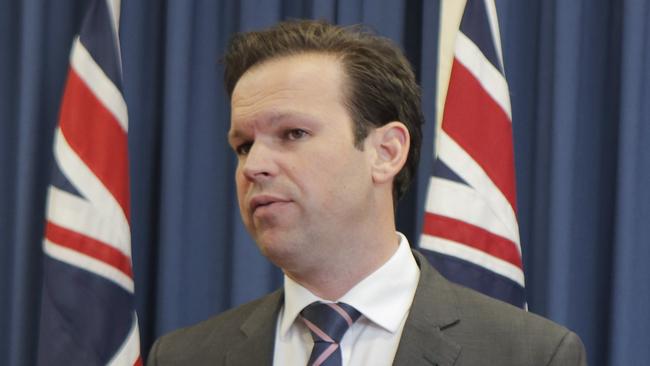‘I got my kids Italian citizenship — it’s a sleeping benefit’
Queensland senator Matt Canavan does not appear to be the only person signed up to Italian citizenship by his family.

Queensland senator Matt Canavan does not appear to be the only person signed up to Italian citizenship by his family, with some parents going to great efforts to bestow the “sleeping benefit” of dual citizenship on their children.
According to advice received by The Weekend Australian, it is possible to apply for Italian citizenship on behalf of a family member who is older than 18 without their knowledge, so long as the proper documents are produced.
While this suggests it was possible for Senator Canavan’s mother to have signed him up for Italian citizenship in 2006 — potentially disqualifying him from parliament under section 44(i) of the Constitution — it is also likely she would have been required to produce several legally verified documents.
Dino Zanon, born in Australia in 1952 to Italian parents who migrated in 1950, went through this process in 2008 and was able to take out Italian citizenship on behalf of his two adult children, born in 1982 and 1985.
Dr Zanon told The Australian yesterday the process took him 18 months because he had to provide several documents to the Italian consulate.
These included his own birth certificate, his parents’ naturalisation papers and birth certificates, his marriage certificate, his wife’s birth certificate, and the birth certificates of his two children.
All the documents, with the exception of his parents’ naturalisation papers and birth certificates, needed to be translated into Italian and legally authenticated by way of an apostille — an official stamp or seal that conveys the legitimacy of documents to foreign governments.
Dr Zanon encountered an additional complication because his father had taken on an Anglicised version of his birth name — Paul instead of Paolo — meaning the relevant Australian documents containing the name Paul had to be changed to Paolo.
This required the approval of the then Department of Immigration and Multicultural Affairs.
Dr Zanon said it was “absolutely doable” for Senator Canavan’s mother to have signed him up for Italian citizenship, but it would have meant a lot of legwork. “It was her choice whether to tell him or not,” he said.
“I did it for my kids. I let them know, but they have never taken advantage of it. As far as they’re concerned, it’s a sleeping benefit.”
He also regularly received voting papers, which he passed on to his children as it was “correspondence with their name on it”.
A feature of Italian law has allowed descendants of expatriates to keep their Italian citizenship throughout the generations, but made it very difficult for immigrants and their children to acquire it.
Italian legislation does not put a limit on the transfer of citizenship by descent, even in the case of people who migrated in the distant past.
After Italy’s constitutional reforms of the early 2000s, citizens deemed to be “continuously residing abroad” were granted the right to vote in Italian parliamentary elections. There are thought to be more than four million Italians registered as residing abroad.
According to data from Italy’s Ministry of Foreign Affairs, between 1998 and 2011 almost one million passports were issued to Italians residing abroad.



